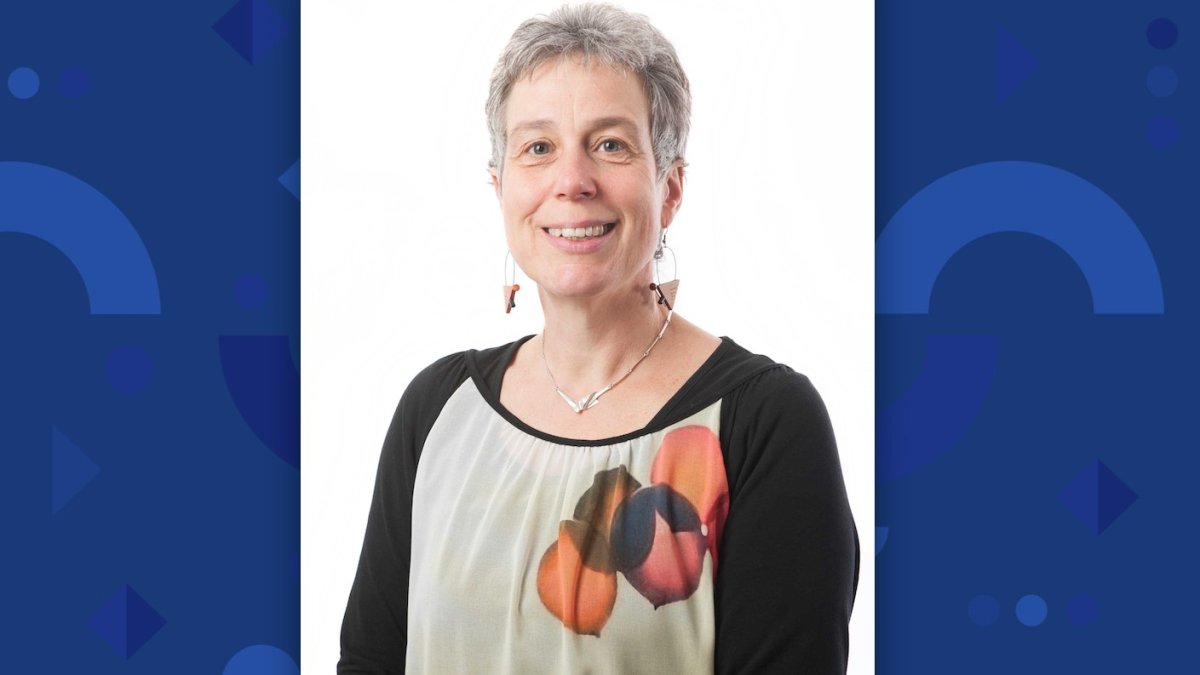Meet Professor Gianne Derks, our new Head of Mathematics
Professor Gianne Derks arrived at Surrey in 1995 after research stints in America, Canada and her native Netherlands. She’s now adding a new role to her CV – as the Head of our Department of Mathematics.

Gianne wants to encourage "a more diverse community with more women and people from different backgrounds"
How did you get into mathematics?
Very slowly. I always liked physics, chemistry and biology as well as maths. But I gradually realised the common element of these disciplines I liked the most was using mathematics to look at different subjects in abstract ways.
Is that still a key area of your research?
Yes. I examine abstract mathematical models to identify structures and frameworks and use those to analyse the models. Then I see how these ideas can be applied to real-life processes in different areas, such as chemistry, physics and biology.
What are your other research passions?
I’m interested in dynamical systems, which includes moving objects and changing spatial features. In the last ten years, I’ve also become more interested in interacting with people in life sciences, to use my skills to get a more quantative understanding of this area.
So, I’m working with people in pharmacology and I have a PhD student who’s investigating mechanistic modelling of tumour growth. This uses techniques of spatial and temporal analysis to examine cancer.
What excites you about taking over the Department?
I’m a team player, so having the chance to help everyone in the Department flourish and reach their potential is exciting. But I’m a small cog in a large machine, so I’ll be doing it alongside everyone else.
Several colleagues have jokingly started calling me "Boss", but I don’t feel like a boss. I feel more like I’m a facilitator trying to organise, support and stimulate new ideas.
What are the strengths of the Department?
There’s a strong focus on dynamical and geometric aspects of mathematics. We’ve carved a really good niche in this area and we’re well known for it in the UK.
We also have many people who work at the interface between the pure and the applied side of mathematics. For example, we’re using mathematical ideas from dynamical systems and geometry to investigate sleep-wake-sleep cycles, cancer dynamics, crime evolution or weather predictions.
This often involves collaborations with other University departments. For example, our sleep and cancer research happens alongside the Faculty of Health and Medical Sciences, our crime studies are in collaboration with the Department of Sociology, and our weather and climate prediction work is done alongside the Centre for Environment and Sustainability.
What do you hope to achieve as the new Head of Department?
I want to stimulate the further development of Mathematics of Data Science, so it becomes a flourishing new research and teaching activity, as well as strengthen the areas we’re already known for. I also want to increase the appeal of studying mathematics to everyone and get a more diverse community with more women and people from different backgrounds.
Why study mathematics at Surrey?
Studying mathematics is great fun and, among other things, you’ll become a really good problem solver who can develop and apply theoretical frameworks to understand and solve real-world problems.
Find out more about studying in our Department of Mathematics.